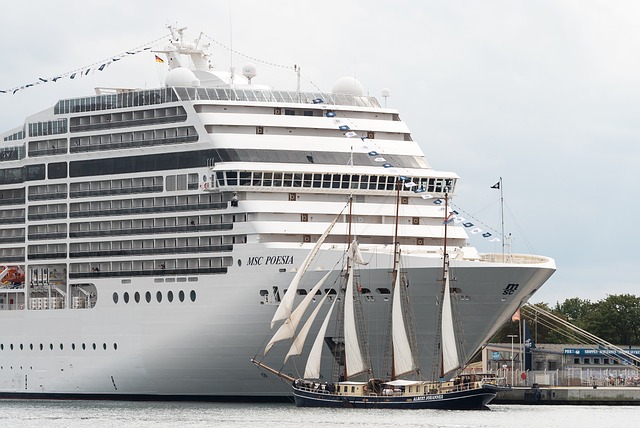Live in Spain and speak English? Explore cruise ship work opportunities from Spanish ports.
Cruise lines departing from Spain often hire staff for a wide range of onboard roles, from housekeeping and food service to guest support and entertainment. If you speak English and enjoy working in dynamic environments, cruise work may offer seasonal or longer-term opportunities. Learn what positions are commonly available and how shifts, accommodations, and hiring usually work on international ships.

What Types of Cruise Jobs Depart from Spanish Ports?
Cruise ships operating from Spanish ports offer an extensive range of employment opportunities across multiple departments. Guest services positions include front desk representatives, concierge staff, and guest relations officers who assist passengers with inquiries and resolve concerns. Food and beverage roles encompass restaurant servers, bartenders, galley crew, and specialty dining attendants.
Housekeeping departments require cabin stewards, public area cleaners, and laundry staff to maintain ship cleanliness standards. Entertainment positions include cruise directors, activity coordinators, children’s program staff, and technical crew for shows and events. Shore excursion staff help passengers book and organize port visits, while spa and fitness roles include massage therapists, fitness instructors, and beauty technicians.
Administrative positions cover human resources, accounting, and purchasing departments. Technical roles include engineers, electricians, plumbers, and IT support staff who maintain ship operations.
What Roles Suit English Speakers on International Cruise Lines?
English-speaking staff members are particularly valuable on international cruise lines departing from Spain, as English serves as the primary working language aboard most vessels. Guest-facing positions especially benefit from strong English communication skills, including guest services representatives who handle passenger requests and complaints.
Tour desk personnel coordinate shore excursions and provide destination information to passengers from various countries. Youth program coordinators manage activities for children and teenagers, requiring clear communication with both kids and parents. Retail staff work in onboard shops selling duty-free merchandise, jewelry, and souvenirs to international passengers.
Food service positions, while requiring less verbal interaction, still benefit from English proficiency when serving international guests or communicating with multinational crew members. Photography staff capture passenger memories and sell photo packages, requiring good interpersonal skills in English.
Entertainment roles like cruise staff and activity hosts need excellent English presentation skills to engage diverse audiences during shows, games, and social events.
How Do Barcelona and Málaga Fit into Cruise Hiring?
Barcelona stands as Spain’s busiest cruise port and a major Mediterranean homeport for numerous international cruise lines including Royal Caribbean, Norwegian Cruise Line, and MSC Cruises. The port’s year-round operations create consistent hiring opportunities, with peak hiring periods occurring before summer and winter seasons.
Málaga serves as another significant departure point, particularly for cruises exploring the western Mediterranean and Atlantic routes. The port’s proximity to tourist destinations like Granada and Seville makes it attractive for cruise lines seeking crew familiar with Spanish culture and attractions.
Both ports benefit from local hiring practices where cruise lines recruit staff who can begin contracts immediately without international travel costs. Local employment agencies and cruise line recruitment offices in these cities regularly conduct hiring events and interviews for upcoming contracts.
What Does Working and Living Onboard Actually Involve?
Life aboard cruise ships involves sharing compact crew cabins with one or more roommates, typically from different countries and cultural backgrounds. Crew quarters feature basic amenities including beds, storage space, and shared bathroom facilities. Most ships provide crew mess halls serving international cuisine, recreational areas with internet access, and designated crew decks for relaxation.
Work schedules typically involve seven-day weeks with 10-12 hour daily shifts during contracts lasting 4-8 months. Staff receive scheduled breaks during working hours and have limited free time during port days to explore destinations. Ship policies govern crew conduct, including curfews, alcohol policies, and professional behavior standards.
Medical facilities onboard provide basic healthcare, while more serious conditions require medical evacuation at crew expense unless covered by company insurance. Crew members must follow strict safety protocols and participate in regular emergency drills.
What Experience and Documents Are Usually Required?
Most entry-level cruise positions require minimal previous experience, though customer service background proves advantageous for guest-facing roles. Specialized positions like massage therapists, fitness instructors, or technical crew need relevant certifications and professional experience.
Essential documentation includes a valid passport with at least 18 months remaining validity, STCW Basic Safety Training certification (often provided by cruise lines), and medical certificates including yellow fever vaccination depending on itinerary destinations. EU citizens benefit from simplified visa requirements for most cruise routes.
Language requirements typically include conversational English proficiency, with additional languages considered advantageous. Some positions require food safety certifications or specific technical qualifications depending on the role.
Background checks and maritime medical examinations are standard requirements. Previous maritime experience, while not mandatory, can lead to faster promotions and higher-ranking positions.
Working on cruise ships departing from Spanish ports offers English speakers unique opportunities to travel while earning income and gaining international work experience. The combination of Spain’s strategic location, diverse job offerings, and the cruise industry’s consistent need for multilingual staff creates a viable career path for those seeking adventure beyond traditional land-based employment.




